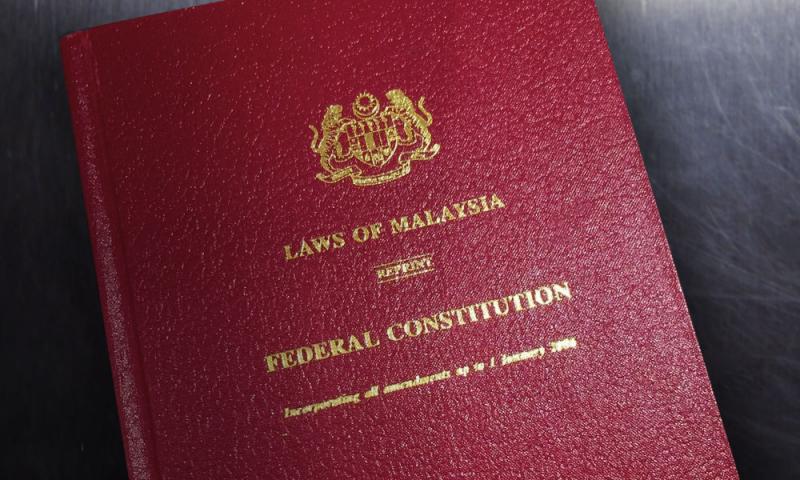A recent video circulating on social media has raised significant concerns. In the video, a preacher claims it is acceptable to convert non-Muslim children to Islam without their parents’ knowledge, provided the conversion is not officially registered until the children reach the age of 18. He suggests converting children first and then teaching them about Islam, including performing prayers in secret.
This practice is deeply disturbing and ethically wrong. It infringes upon Article 12(4) of the Federal Constitution, which clearly states: “For the purposes of Clause (3), the religion of a person under the age of eighteen years shall be decided by his parent or guardian.” This constitutional provision unequivocally mandates that the religion of a child under eighteen is to be determined by their parents or guardians.
Declaration of Faith
The Shahada, or declaration of faith, is indeed a central tenet of Islam, embodying the monotheistic essence of the religion. Its simple yet profound proclamation—”I bear witness that there is no deity but God, and I bear witness that Muhammad is the Messenger of God”—is a testament to a Muslim’s faith and commitment to the core beliefs of Islam. This declaration is a pivotal aspect of daily worship, marking the entrance into the faith and reaffirming the believer’s devotion.
Any preacher or person performing Daʿwah in Islam plays a crucial role. Unlike religious leaders, they guide and support their communities through their knowledge and interpretation of Islamic teachings, offering spiritual and practical advice to community members; in this case, a preacher is preaching the wrong ethics, where Da’ wah is concerned.
The education and guidance educated preachers provide are essential in fostering a deeper understanding of the Shahada and other aspects of the faith, particularly for younger Muslims. While children might recite the Shahada, the comprehensive grasp of its meaning and responsibilities generally develops with maturity and religious education. Religious teachers are instrumental in this process, ensuring that the younger generation grows up with a solid foundation in their faith, capable of carrying forward the traditions and values of Islam.
Unilateral Conversion
The issue of unilateral conversion, which refers to converting a person’s religion without the consent of all parties involved, has been a persistent problem in Malaysia. This term is often used in the context of a parent converting the religion of their minor child without the consent of the other parent. It violates the rights of children, parents, and individuals, leading to distress and trauma for the families involved. The children often find themselves caught in the crossfire of legal disputes and emotional upheaval.
One significant case is that of Indira Gandhi, a Hindu single mother whose ex-husband, Muhammad Riduan Abdullah, converted to Islam and unilaterally converted their three children to Islam in 2009. After a protracted legal struggle, the Federal Court invalidated the unilateral conversion of the children on 29 January 2018.
Another similar case involves Loh Siew Hong, a single mother whose ex-husband, after converting to Islam, unilaterally converted their three children to Islam in 2020 following their separation in 2019. This led to her being estranged from her children. In January 2024, the Court of Appeal overturned the unilateral conversion of her children to Islam by their father and in May 2024, the Federal Court affirmed the Court of Appeal’s ruling in favour of Ms. Loh.
The unilateral conversion of minors carries severe repercussions and adverse effects. Children, still in their formative years both mentally and physically, are ill-equipped to make profound decisions such as religious conversion. Studies indicate that the brain continues to develop during adolescence, impacting their decision-making capabilities. The Shahada, the Islamic declaration of faith, is meant to be recited with understanding, intent, and meaning. No child is capable of fully grasping the significance of this declaration.
Covert Preaching
The approach of covertly converting children undermines the very principles of religious freedom and informed consent. It disrupts the trust between parents and children, creating a foundation of secrecy and potential conflict. By promoting such actions, preachers not only violate ethical standards but also risk legal repercussions and societal backlash.
It is crucial to instil in children that religious beliefs and faith stem from comprehension and acceptance, not manipulation. Encouraging covert conversion fosters dishonesty in children, particularly towards their parents, which contradicts the core values of Islam.
Given the legal situation in Malaysia, where it is almost impossible to leave Islam as a religion, the future of children who are converted discreetly becomes particularly troubling. As adults, these individuals may face significant legal and societal challenges if they ever wish to revert from being a muslim to their previous religion. The pressure to conform to a religion they did not choose can lead to internal conflict, resentment, and a lifelong struggle with identity.
Any form of manipulation or coercion in religious conversion, especially involving minors without parental consent until they reach the age of 18, warrants serious attention. Upholding the Federal Constitution is paramount in safeguarding the rights of all individuals.
*****
